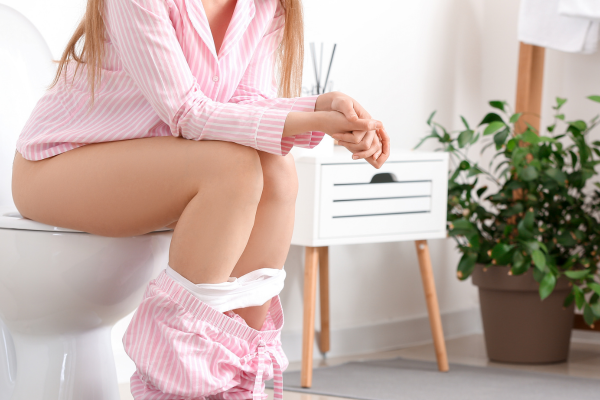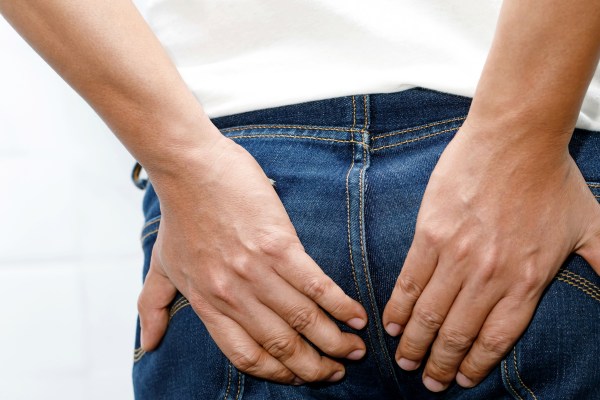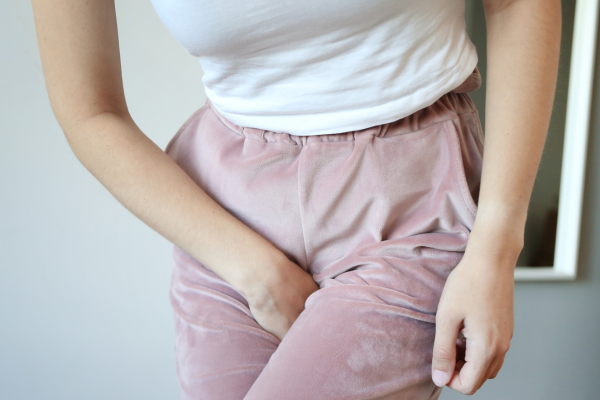Incontinence (fecal), gut health and collagen

Fecal Incontinence, Gut Health, and Collagen: An In-Depth Understanding of the Connection
Fecal incontinence, or the inability to control bowel movements, is a condition that affects many people worldwide. It can range in severity from mild episodes of leakage to complete loss of bowel control. For the sufferer, it often causes both physical and psychological distress that affects quality of life and can lead to social isolation and reduced self-esteem.
Bowel health is a fundamental factor in maintaining control over bowel function. Everything from dietary habits, digestion, gut flora and bowel motility affect the ability to control stool. Collagen, a structural protein found throughout the body, also plays an important role in the function and structural integrity of the bowel. In this article, we will explore the connection between fecal incontinence, bowel health and collagen, and how these factors may interact to influence this common condition.
What is fecal incontinence?
Fecal incontinence is a medical condition in which a person is unable to control bowel movements, leading to the unintentional leakage of stool. It is a common problem that affects both men and women of all ages, but it is especially common in the elderly and people with certain underlying health conditions, such as neurological diseases or previous pelvic surgery.
The symptoms of fecal incontinence can vary depending on the severity of the condition. In some individuals, leakage may occur with a sudden or unexpected need to empty the bowels, while others may experience a complete loss of control. The condition can be divided into three main types:
-
Bowel motility disorders : This means that the intestines do not move effectively, leading to delayed or incomplete emptying of the bowel.
-
Impaired sphincter function : The anal sphincter is the muscle that keeps the anus closed until it is appropriate to release stool. If this muscle is weakened or damaged, fecal incontinence can occur.
-
Loss of sensation in the anus and rectum : If the nerves responsible for conveying sensations of pressure and fullness in the rectum are damaged, the individual may lose the ability to feel the need to empty the bowels.
Fecal incontinence is not only a physical problem but can also have a major impact on the sufferer's mental well-being. Many people feel shame and frustration at not being able to control their bowel movements, which can lead to social isolation and depression.
Bowel health and fecal incontinence
Gut health is a fundamental aspect of maintaining control over bowel function. The gut has many important functions, including breaking down and absorbing nutrients, regulating fluid balance, and eliminating waste from the body. When the gut is not functioning optimally, it can lead to problems such as constipation, diarrhea, or fecal incontinence.
Factor 1: Digestive system motor skills
Bowel motility, or how efficiently the bowel moves to move its contents forward, is a crucial aspect of maintaining control over bowel movements. This is achieved through a series of coordinated muscle contractions called peristalsis. If motility is impaired, the bowel cannot empty itself effectively, leading to problems such as delayed emptying or leakage. Fecal incontinence is often associated with impaired motility, especially when the bowel cannot move its contents properly, which can make bowel movements difficult to control.
Factor 2: Gut flora and probiotics
The gut flora also plays a central role in digestion and the control of bowel function. A healthy gut flora helps to properly break down food and absorb nutrients, while also playing a role in regulating intestinal motility and the integrity of the intestinal wall. An imbalance in the gut flora, such as dysbiosis (an imbalance in the gut microbiome), can lead to problems such as gas, bloating, diarrhea, and fecal incontinence.
Factor 3: Constipation and diarrhea
Both constipation and diarrhea can affect bowel health and cause fecal incontinence. Constipation leads to hard stools, making it difficult and painful to have a bowel movement. If a person has to strain to have a bowel movement, this can cause damage to the muscles and nerves that control the anal sphincter, increasing the risk of incontinence. On the other hand, diarrhea can lead to loss of control over bowel movements due to the rapid and unexpected passage of stool.
Collagen and its role in intestinal health and fecal incontinence
Collagen is the most abundant protein in the body and is found in skin, cartilage, bones, tendons and blood vessels. Collagen is essential for the structural integrity and elasticity of tissues, and it plays a central role in providing strength to the walls of our blood vessels, connective tissue and other organs, including the gut.
The impact of collagen on the structure of the intestine
The intestine is made up of several layers of tissue, including a layer of smooth muscle responsible for peristalsis and a layer of connective tissue that provides structural stability. Collagen is an important component of connective tissue, and if collagen production is impaired, the tissues can become weaker and more prone to developing injuries. Weaker connective tissue in the intestinal walls can lead to reduced strength of the intestinal walls and affect bowel function, which can contribute to fecal incontinence.
Collagen and the anal sphincter
The anal sphincter, the muscle that controls the opening of the anus, also relies on collagen for its strength and elasticity. This muscle must be strong enough to keep the anus closed until it is time to have a bowel movement. If collagen production decreases, for example due to aging or long-term inflammation, the muscles in the anal area can become weaker and less elastic. This increases the risk of impaired sphincter function, a common cause of fecal incontinence.
Collagen and healing
Collagen plays an important role in the body's healing processes, especially when it comes to repairing tissue damage. If there is damage to the muscles or connective tissue in the anus and rectum, for example after childbirth, surgery or another traumatic event, collagen is necessary to rebuild these tissues. By supporting collagen production, we can improve the body's ability to recover from damage, thereby improving bowel health and reducing the risk of fecal incontinence.
Lifestyle factors and treatment
To improve both gut health and collagen production, there are several lifestyle factors to consider:
-
Diet : A diet rich in vitamin C (which is necessary for collagen production) and amino acids like glycine and proline (found in protein-rich foods like meat, fish, and eggs) can support collagen production and strengthen intestinal tissues.
-
Exercise : Regular physical activity improves bowel motility and strengthens the pelvic floor muscles, which is important for maintaining control over bowel movements.
-
Fiber and fluids : A high-fiber diet and adequate fluids help prevent constipation and improve intestinal flora, which can reduce the risk of fecal incontinence.
-
Treating underlying conditions : Treating any underlying conditions, such as constipation or diarrhea, as well as supporting gut flora with probiotics, can help improve gut health and reduce the risk of fecal incontinence.
Conclusion
Fecal incontinence is a condition that is often influenced by several factors, including gut health and collagen production. A healthy gut flora, efficient motility, and strong tissues are essential for maintaining control over bowel movements. Collagen, a fundamental structural protein, plays a central role in maintaining the strength and elasticity of both the intestinal walls and the anal sphincter. By supporting gut health and collagen production through diet, exercise, and appropriate treatment of underlying issues, we can reduce the risk of fecal incontinence and improve the quality of life for those suffering from this condition.






